As the March 8 trade deadline approaches, Montreal Canadiens general manager Kent Hughes will be looking to unload players the organization has outgrown. It’s not just pending unrestricted free agents (UFAs) he’ll otherwise probably lose for nothing, but also Habs with bad contracts he probably wouldn’t mind losing for nothing. You see? There’s a not-so-happy mix.
Related: Who’s Likely Playing Their Last Season With the Canadiens in 2022-23?
Now, Hughes may very well not be successful. Even just speaking for the pending UFAs, it’s not like they’re all hotcakes or hot commodities in general and can sell themselves. The natural order of things will nevertheless sort itself out, as those contracts expire come July 1. One way or another those unwanted players won’t be back.
The same unfortunately can’t necessarily be said for the other names populating this list of the likeliest Canadiens playing their last games with the Habs in 2023-24. Here are the ones who are not long for the lineup or organization overall in order of increasing likelihood they leave the team (via trade or as free agents) by the start of 2024-25:
7. Christian Dvorak
Christian Dvorak being a second-line-centre insurance policy for the oft-injured Kirby Dach would be an easier sell if he himself wasn’t injured so much. He’s played just 145 games through three seasons with the Canadiens. Plus, when he has been healthy, his production hasn’t really been impressive (68 points).
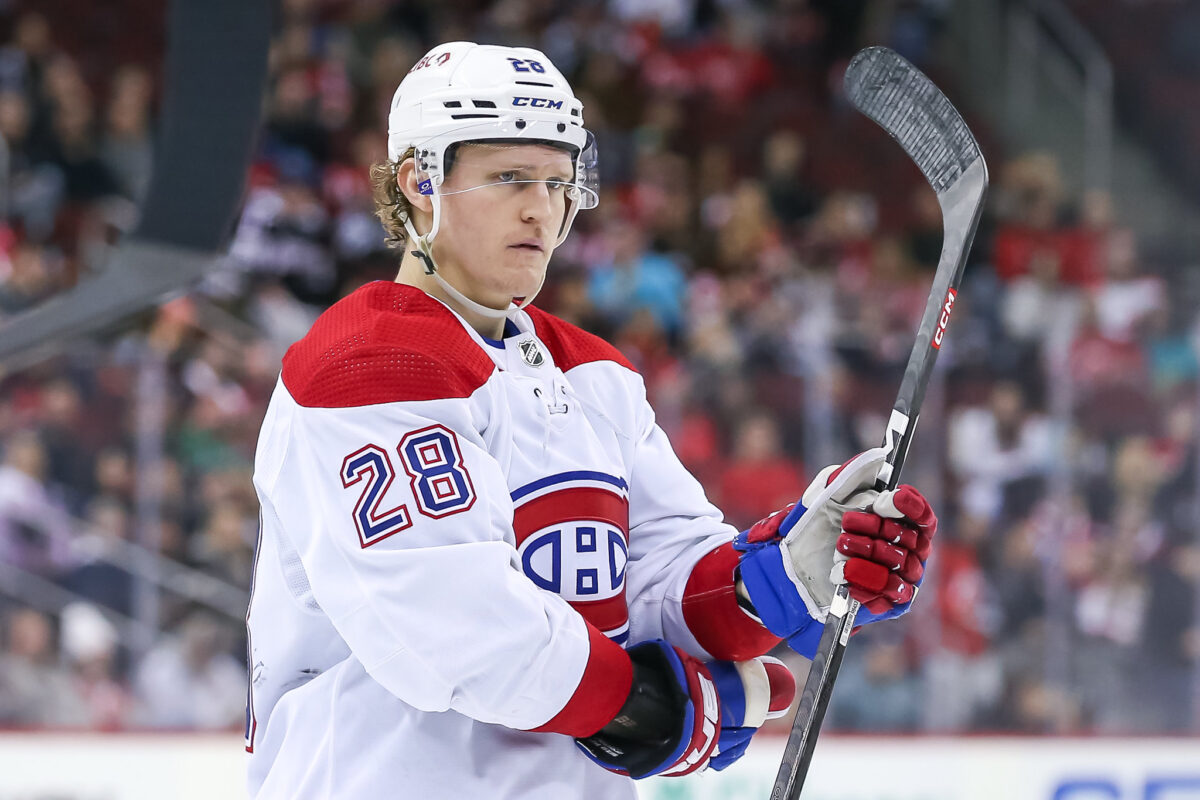
Ultimately, Dvorak suits the Canadiens’ purposes more as a third-line centre, at least until their prospect depth down the middle is ready for primetime. Thankfully, his $4.45 million cap hit through 2025 is reasonable on both fronts, in the face of justifiable calls for Hughes to trade him.
Even the most ardent Dvorak supporters must admit he was never a good fit, even from the start when he was acquired as a knee-jerk reaction to the team losing both Phillip Danault and Jesperi Kotkaniemi. Now that he’s here and has failed to live up to expectations on the whole, though? There’s no point in rushing his departure when expectations surrounding the Canadiens are as low as they are.
6. David Savard
The Canadiens are understandably placing a premium on ice time to their younger players. Trading Joel Edmundson last offseason cleared up how much of a priority that was for Hughes and company. However, that was on the left side, where the Canadiens had much more of a logjam than on David Savard’s right.
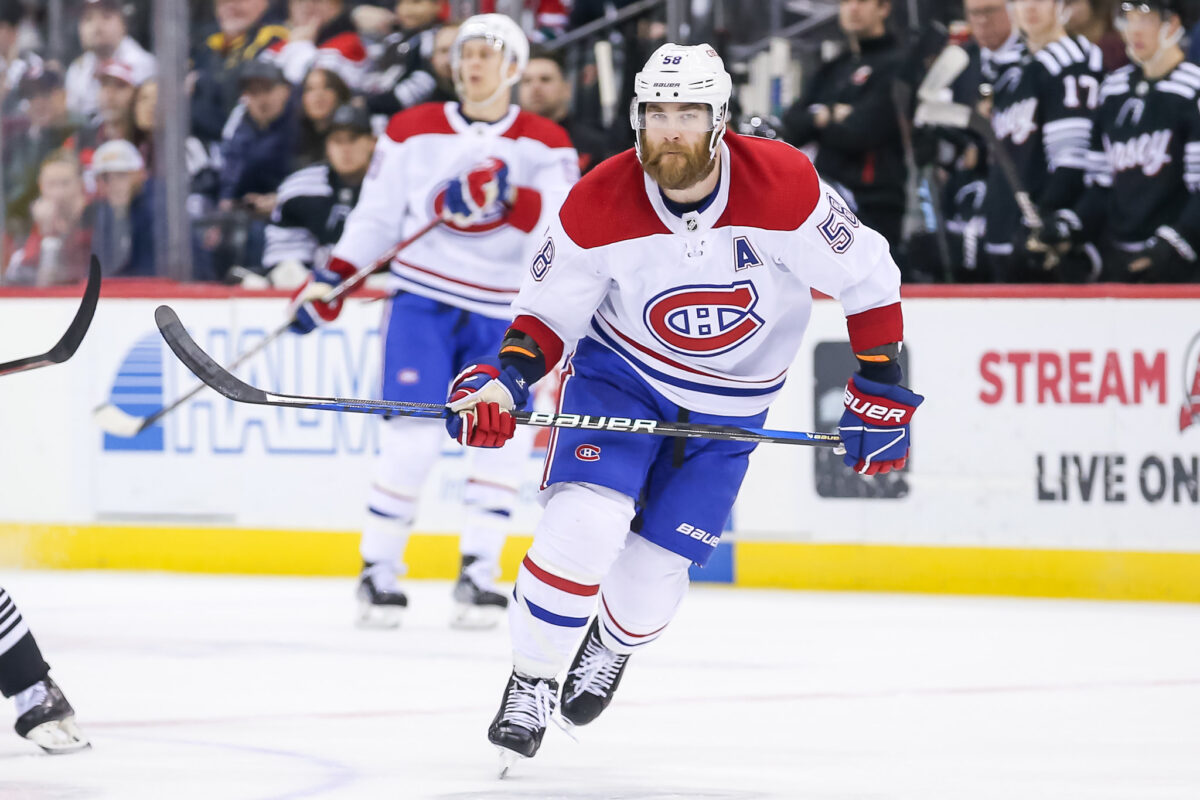
You’ve got Mike Matheson, Kaiden Guhle, Arber Xhekaj, Jayden Struble and Jordan Harris, the latter of whom the Canadiens have actually taken to playing on the right to mitigate the issue. So, you have to believe, if they do trade someone, they see Harris as the most expendable of the bunch. However, how can you justify trading Harris from off the right side when you’ve also got Savard? He’s 9.5 years older and on a much bigger deal that expires in 2025, at which point Harris will only be a restricted free agent?
That would be bad asset management, especially when you could conceivably get more for the former, leveraging his leadership and Stanley Cup-winning experience. On the other hand though, can you even justify trading away Savard, when he’s the purest defensive, stay-at-home presence on a back-end starving for guidance? Probably not, but if someone has to go it should be him above all else.
5. Joel Armia
To his credit, Joel Armia has done a good job building his value back up in the organization, after Hughes demoted him to the American Hockey League (AHL) to start the season. It might not be enough to build his value back up in the eyes of the NHL’s other 31 teams, though. His $3.4 million cap hit, which lasts until 2025, might be too big for them to swallow for a penalty-kill specialist destined for a bottom-six role.
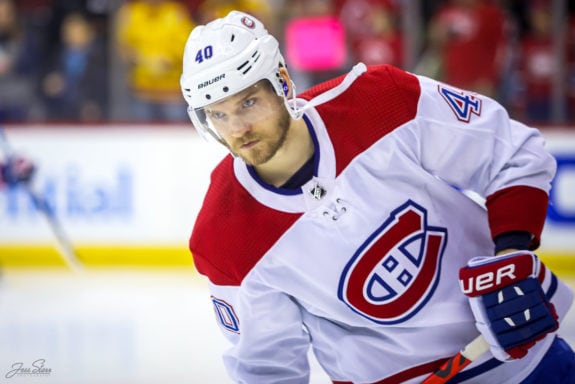
However, Hughes faced a deck that was similarly stacked against him last summer when he traded Mike Hoffman. Not only did he get Hoffman’s deal off the books, opening up a roster spot for someone more deserving, but he got value for him too… exceptional value, even. That may be setting the bar too high for any Armia trade, but no one can deny the forward’s unlikely to stay a Hab up to the end of his deal. If fans (and presumably Hughes) have their way, he won’t make it to the start of next season.
4. Mitchell Stephens
Based on the amount of depth the Canadiens have down the middle (when they’re healthy), there’s no reason to bring back centre Mitchell Stephens under the guise of him being in their long-term plans. However, if he’s okay with the idea of continuing to get minutes in the AHL, the Habs themselves shouldn’t have issue with the arrangement. There’s little reason he would be though.
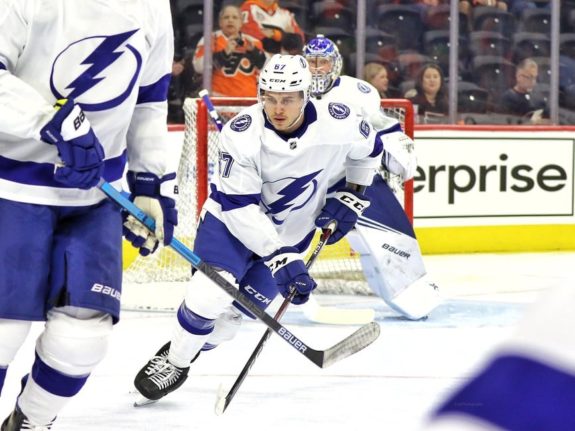
Stephen is still just 27. Granted, by most accounts that’s past the point he can realistically establish himself as a full-time NHLer. However, if Brandon Gignac, who was born the same year, can get everyone excited about his prospects of finally catching on with an NHL team after playing his first NHL game in five seasons in 2022-23, Stephens definitely has the right to keep on trying too (when he literally played 95 NHL games between Gignac’s first and second). That chance, if it exists, probably only comes in another organization. So, as a pending UFA, he’ll likely look elsewhere.
3. Jake Allen
Hughes needs to find a way out of his three-goalie rotation. As arguably the netminder who has the least to offer the Canadiens in the future, Jake Allen’s own future with the team should be coming to an end.
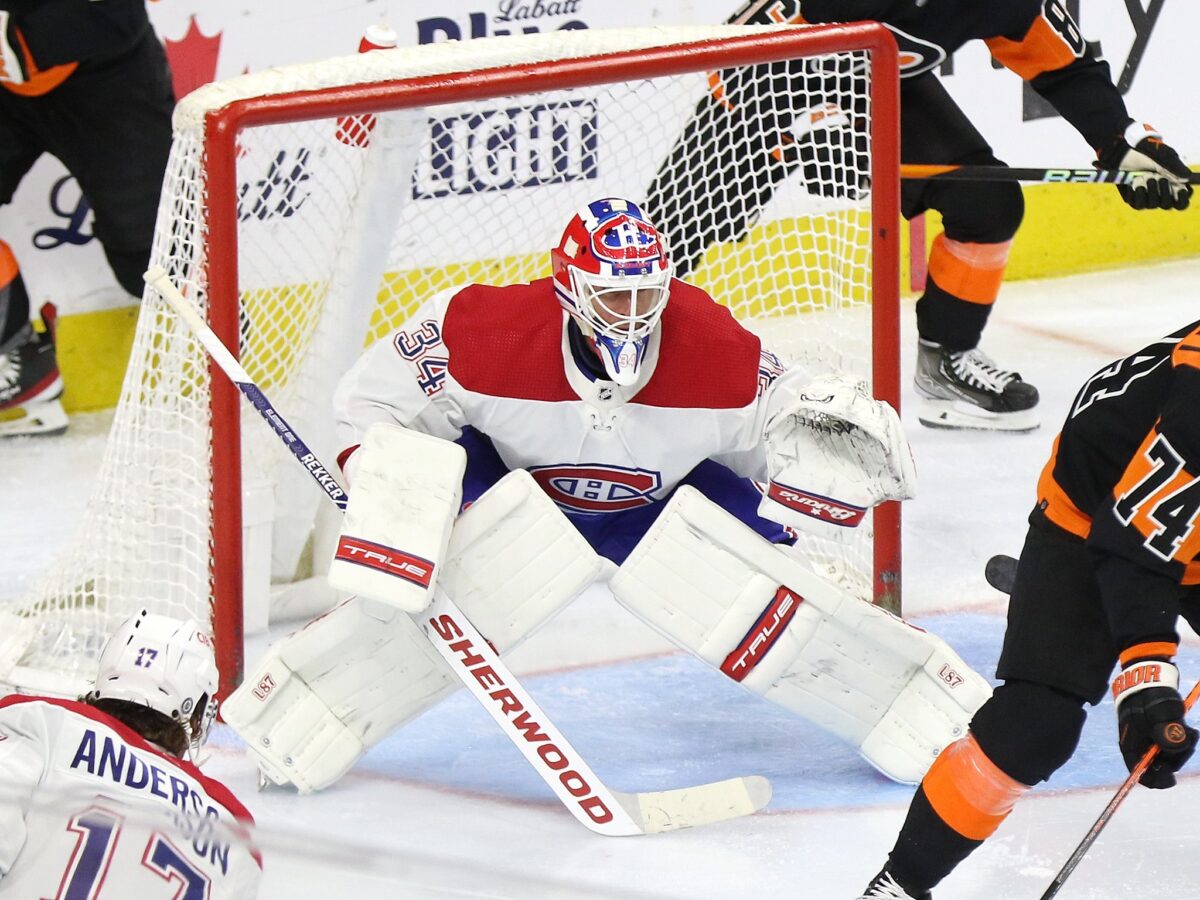
It’s of course far from guaranteed. Allen has one year left under contract at $3.85 million. For someone who’s been relegated to the role of a backup, that’s not a marketable price tag. Considering Allen’s numbers are far from impressive (5-11-3, 3.66 goals-against average, .894 save percentage), that’s a recurring theme. However, to enable No. 1 Samuel Montembeault to find a rhythm, trading at least one of Allen or Cayden Primeau has to be Hughes’ top priority. Trading Allen makes more sense.
The adage goes, “if there’s a will, there’s a way.” Hughes must acknowledge to himself if not the media that the extension to which he signed Allen hasn’t gone according to plan. So, new plan: Find a way to trade Allen, if not by the trade deadline than in the offseason.
2. Tanner Pearson
Best-case scenario? When the Canadiens traded goalie Casey DeSmith to the Vancouver Canucks, they just threw Tanner Pearson in, with the third-round pick being the actual centrepiece for the Habs. Worst case? The trade was conditional on Pearson’s inclusion on the Canucks’ end, after he was limited to 14 games last season due to a hand injury that sparked an internal investigation as to how it was handled.
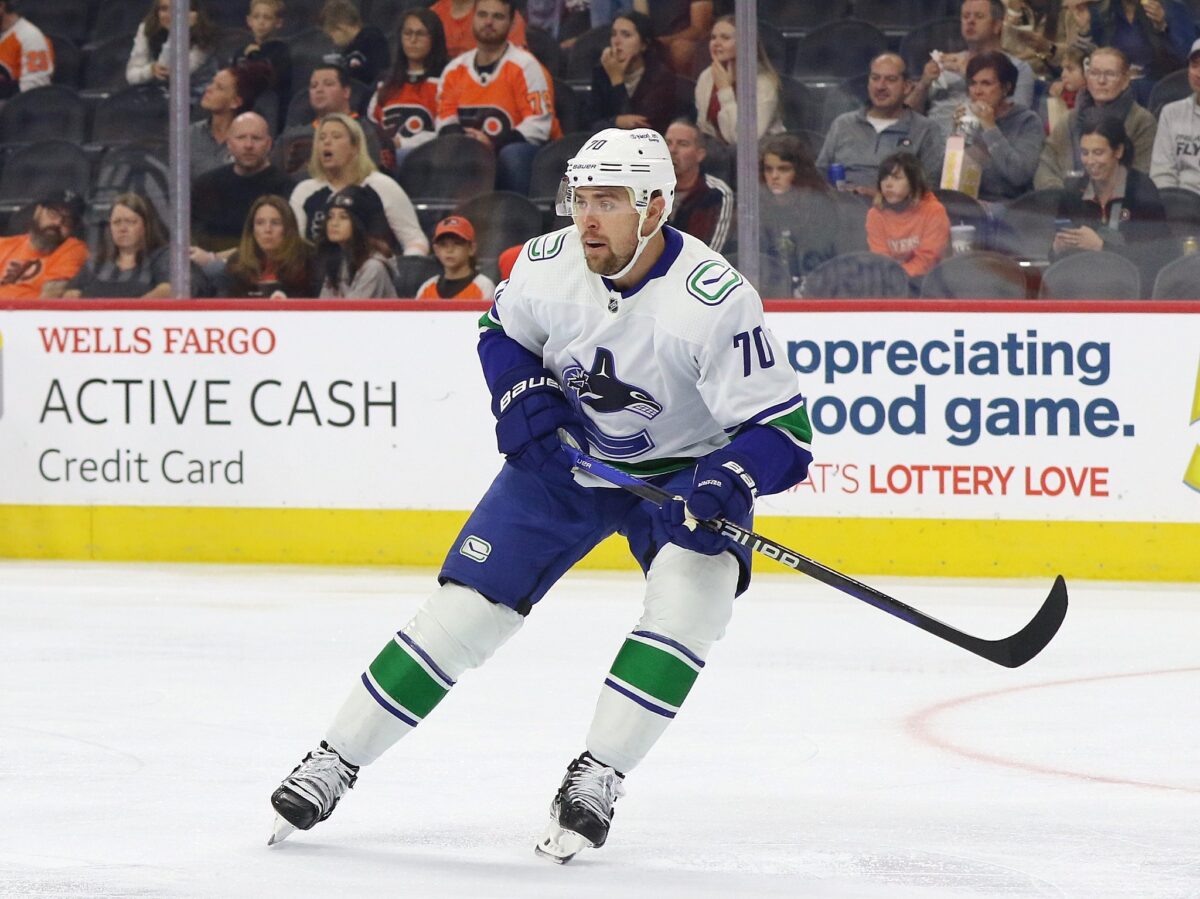
Both sides seemed to need to move on, in other words. Now, that seems to be the case anew just with the Canadiens, as Pearson has scored just 10 points in 36 games. The depressing part is he started off the season with five points in his first five games, sparking false hope they could parlay him into another first-round pick at the trade deadline (in addition to the one they already got by trading Sean Monahan).
It’s telling that even under the hypothetical circumstances of Pearson putting together an incredible rebound season though, many still saw him as trade bait (admittedly as a pending UFA). So, it stands to reason, now that he’s fallen on hard times from a production standpoint, he’ll be leaving one way or another.
1. Chris Wideman
The Canadiens won’t re-sign defenseman Chris Wideman, who went from a hypothetical all star in Season 1 of his Canadiens stint (leading to a two-year extension) to a depth player in Season 2… and onto the injured reserve list for all of Season 3 up to now.
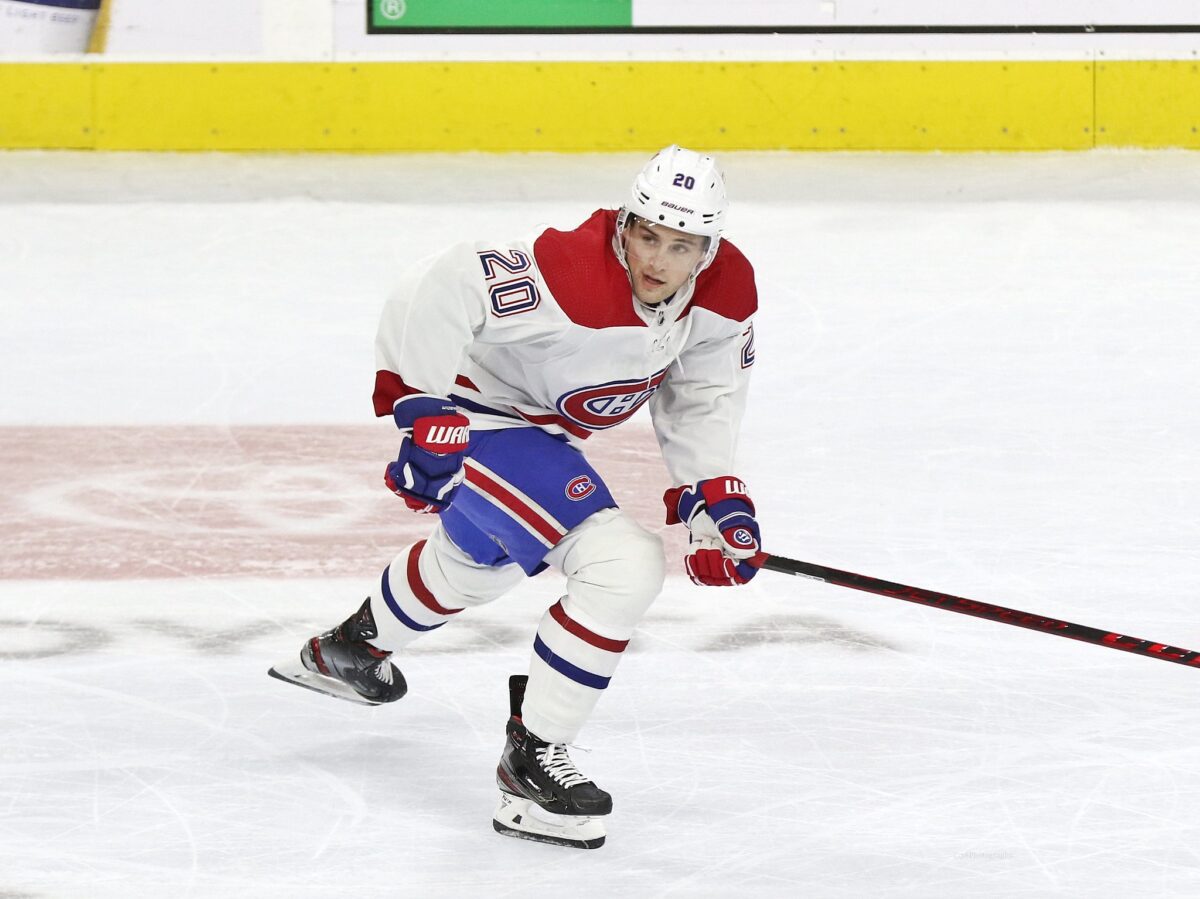
Truth be told, Wideman was always a depth defenseman in principle. He just made the most of a bad organizational injury situation in 2021-22, working his way up the lineup to tally a career-high 27 points. The mere $12,500 cap-hit increase he got in his extension as a result kind of shows Hughes’ mindset in extending him.
By the time Season 2 rolled around, fellow-right-handed defensemen Johnathan Kovacevic and Justin Barron had started to establish themselves in the organization. With names like David Reinbacher and Logan Mailloux in the pipeline, even if they don’t pan out long term, it makes no sense for the Canadiens to put up roadblocks in their development by re-signing a defenseman they only really needed as a body once upon a time, all due respect to Wideman, who has obviously enjoyed some success in town.
Unfortunately, even if Wideman does get his own body back healthy, there’s just no room for him on the roster. Really, there’s no room for debate. You can pretty much bank on the Canadiens walking away. For all the good Wideman has brought to the Habs, it’s for the best as they balance their needs to find ice time for their younger players and compete all at once. He just doesn’t fit in, in any sense.
